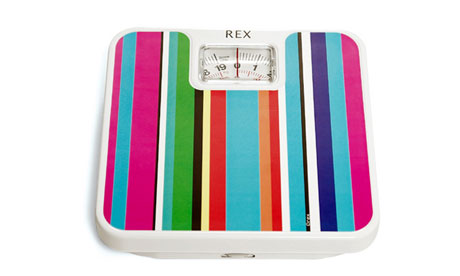
The problem
If you're on a diet and expect to lose 1lb a week for every 500 calories you cut a day you may be disappointed. National Institute for Health and Clinical Excellence (Nice) guidelines say that you'll be rewarded with a half a stone weight loss in a couple of months but Dr Kevin Hall and fellow researchers at the National Institute of Health (NIH) claim that weight loss plateaus – partly because your metabolism slows and also because people don't stick to their diets.
In a presentation this month to the American Association for the Advancement of Science, Dr Hall showed how his mathematical model of weight loss could calculate how many calories and how many much exercise was needed to lose a certain amount of weight. It suggests losing weight may take up to twice as long than we expect.
So if you reach a plateau should you intensify the regime or embrace your chubbiness and reach for the digestives?
The solution
You need to be realistic about how much weight you want to lose and how quickly you want to do so. The NIH online simulator tool is meant for researchers and doctors to use with patients. However since it was reported in the media it has been visited hundreds of thousands of times. You have to enter your sex, age, height, weight, how active you are, how much weight you want to lose and over what period of time. The simulator calculates the amount of calories to reduce by and how much exercise you need to do to achieve the loss., as well as what you'll need to dohow to maintain it.
"People often have lofty goals," says Hall. "The simulation tells you the life changes you will have to make to lose and maintain that weight loss. These changes are permanent. Maintenance is not so hard if you plan for it at the start." If the plateau in weight loss was due just to your metabolism slowing, it would happen after three years of dieting, says Hall. Most plateaus happen at six to eight months and are due largely to people relaxing their regimes. "It's a big struggle to keep the cut in the number of calories," adds Hall. "It is harder when you are cutting a modest number because it can be difficult to know how much you are eating when you are not being measured in a laboratory." Another rule of thumb is that for every pound you lose you have to cut 10 calories a day for ever after.
If you do plateau, check that you're sticking to your plan and whether your goal is unrealistic. The ongoing National Weight Control Registry in America is the largest study of long term successful weight loss (on average its 5,000 members have lost 30kg – 66lb – and kept the weight off for five-and-a-half years). It finds that people who manage to keep weight off eat breakfast, weigh themselves once a week, watch less than 10 hours of television a week and exercise about an hour a day. If you do all of those things as well as cut your calorie intake, you won't need to measure if your diet is working or not. You'll know that it is.

